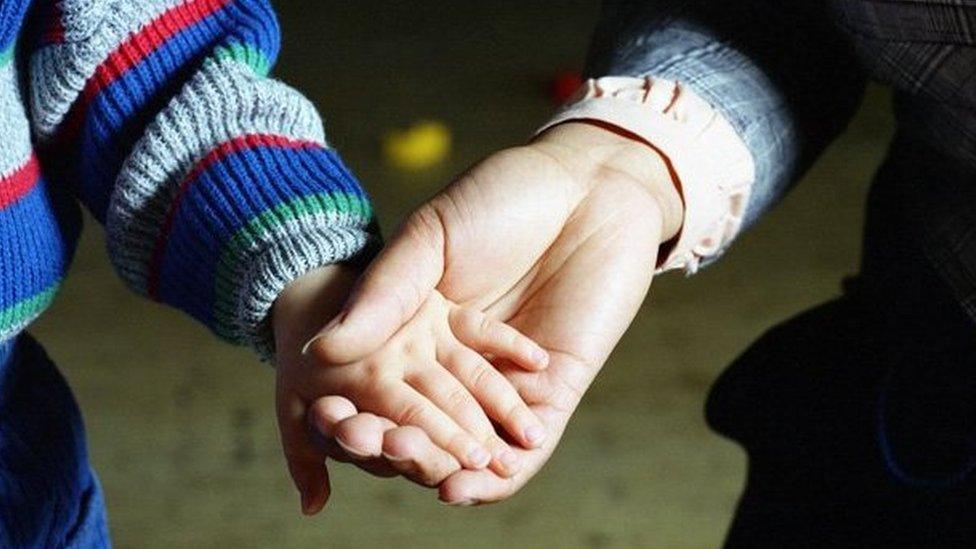Michael Sheen: I broke down hearing kids' care stories
- Published
Actor Michael Sheen says the "worst things imaginable" are happening to children in care
How would you feel if your child, or one you knew, was taken into care and ended up living in a B&B, a hostel, or even slept rough?
What I'm talking about here is "the care system", the safety net we'd rely on if we couldn't look after our kids.
I've been working on a BBC documentary which has found teenagers are still being placed in B&Bs and hostels - six years after the Welsh government said it wanted to "eliminate" it.
Some of the stories have shocked me.
With record numbers of children being taken into care in Wales and England, I've spoken to some young people who have been through the care system in an hour-long documentary, filmed over nearly three years, I've helped make for the BBC.
My question is: does the care system always "care" for children who can't stay with mum or dad?
'Prison would've been better for me'
"I know for a fact prison would have been better than where I was placed," Niall told my BBC Wales Investigates 'Lifting the lid on the care system' documentary.
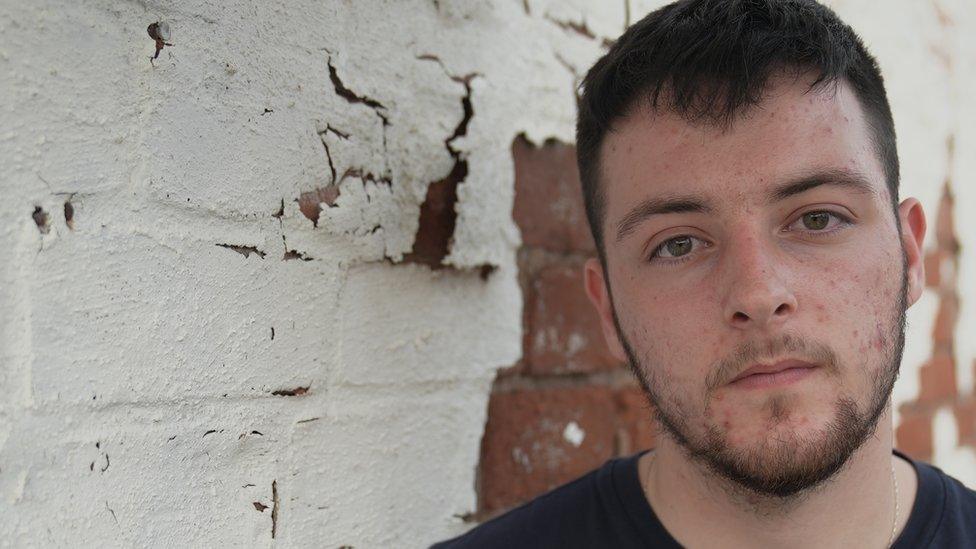
Niall says one of his care placements was "one of the worst places he'd ever lived"
He says he grew up moving in and out of care between the age of 14 and 18 - and after a place in a children's home broke down just as he turned 17, he was placed in a B&B.
"People moved there that had just come out of prison and stuff," Niall added.
"So I got robbed a couple of times in there. You'd see people kicking down doors on a daily basis, there'd be people smashing windows, people carrying knives."
Niall told me he was then moved into what he describes as a hostel, although his council insists it was supported housing as they tried to find him somewhere permanent to live.
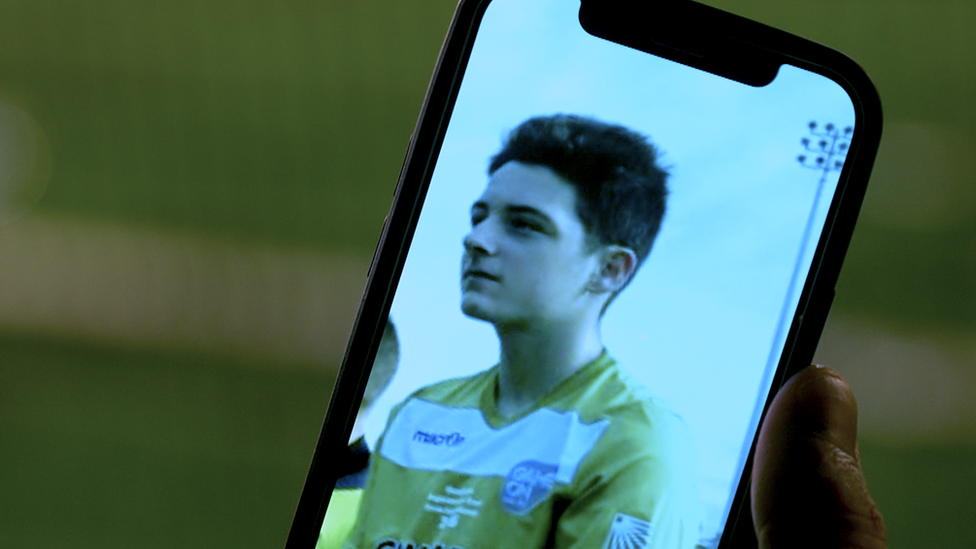
Social services found Niall a flat but he was targeted by the people who were with him in the hostel
"I was woken up by a punch basically," he recalled about one incident.
"So I had to start barricading my door which, obviously, they got through eventually. It was like they put all the troubled teenagers under one roof."
The people in charge of Niall's care said they made every effort to find him somewhere else to stay and that his case was not straightforward, but Caerphilly council did not comment on the threats and violence.
'I felt so alone and lost'
Hope was taken into care at 14 but ran away after her foster placement broke down when she was 16.
The state took charge of Hope as she had been exploited by people in her community
"I was a child in a tent with an adult who was over the age of 18, sleeping rough, where nobody knew where I was," Hope, now in her early 20s, told me.
"I was technically a child of the state. It wasn't OK... I was at risk."
Those responsible for Hope's care said it could not comment on individual cases but Wrexham council said its services had been transformed and it would use Hope's comments to improve things further.
In 2016, I presented a petition to the Welsh government to end the practice of children being placed in B&Bs and hostels.
Ministers said they wanted to "eliminate" it - but six years on, it's still happening.
Research by the BBC Wales Investigates team suggests dozens of teenagers like Niall and Hope are still being put in that position.
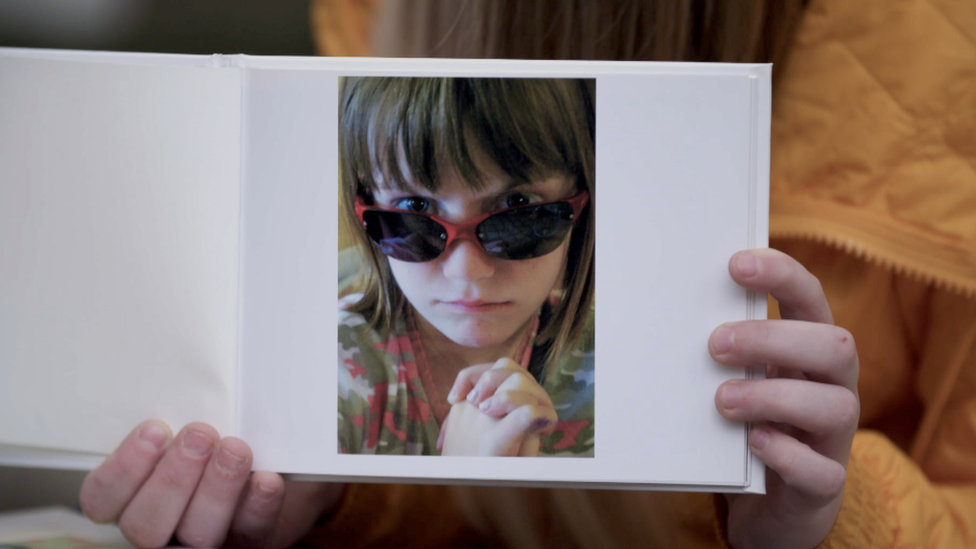
Hope has fond memories of growing up with her grandparents, but says bullying in school and the trauma of leaving her mum made her feel vulnerable
Freedom of information requests to all councils in Wales showed at least 50 young people were placed in B&Bs, hostels and budget hotels in the past financial year, with at least 285 in other accommodation which is not regulated by the care watchdog.
I don't want this to come across as an attack on social workers - because it's not.
It is their job to look after these young people but they're working within a system that is, according to one report last year by those in charge of social services, facing a "crisis" to find suitable places, external for children to stay.
While most children placed in such temporary accommodation are 16 or 17, our investigation found a small number are even younger.
One example included an 11-year-old being housed in temporary accommodation with council staff, because there was nowhere else for them to go.

SAM SMITH PRESENTS STORIES OF HIV: From Terrence Higgins to today
LIFTING THE LID ON THE CARE SYSTEM: A shocking insight into the lives of young people in care

'It was like no-one cared, because it was only me'
Gemma - not her real name - felt she was let down by the system that was supposed to keep her safe.
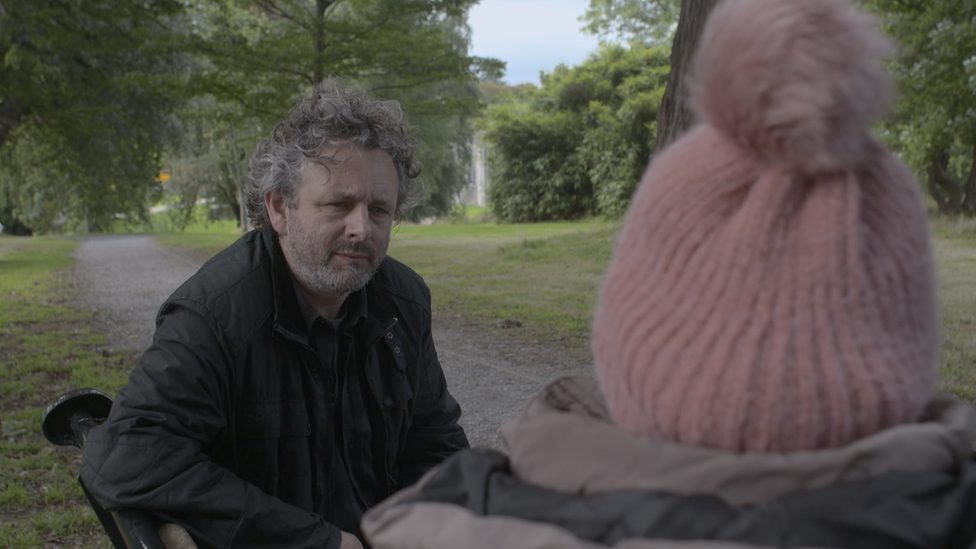
Gemma told me she was known to social services since she was born and remembered going missing 110 times one summer when she was about 12
She says she was exploited by older men when she was young before eventually being taken into care at 14, when she had become addicted to heroin.
"I'd moved house 12 times by the time I was 15," she said.
"I've never fully unpacked anywhere. Nobody ever keeps me very long anyway."
When she was 16 she was offered a hostel to stay in by social workers, which she said had a drug dealer staying there.
"I'd just spent nine months getting clean," Gemma said.
"They then placed me in this hostel where he was anyway. I was there less than a week before I was back on drugs."
After meeting Gemma and hearing all she'd been through, I broke down because what she had experienced and what she told me was just devastating. No child should have to live that life.
My personal view is that we shouldn't tolerate that some young people just disappear and the worst possible things imaginable happen to them.
Children who, from the beginning and often through no choice of their own, find themselves in circumstances that already makes things harder for them than it does for anyone else.
People in social care tell you those are the children who are most likely to end up homeless, most likely to end up with mental health issues, with alcohol and drug dependency issues and even being sexually abused.
Committed yet complex
The group that represents Wales' 22 local authorities said councils in Wales were "committed to doing their best in responding to the growing demands and increasingly complex challenges in children's social care".
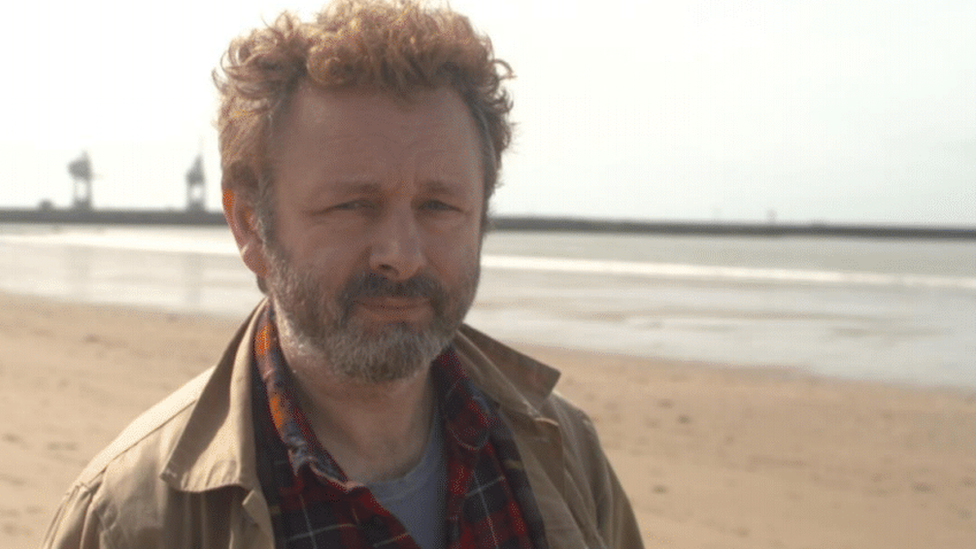
I launched a petition calling on the Welsh government to help homeless teenagers in Wales in 2015
The Welsh Local Government Association said it regretted the standard of care and support it wanted to achieve has not been met in everyone's case, and that it was keen to learn from young people's experiences.
It also believes there is a need for additional funding to help children and families earlier, and that wider societal issues such as access to health services and ending child poverty are not things children's social care can solve alone.
When I challenged Wales' deputy minister for social services on her government's record, she told me that while the majority of children in the care system grow up in loving families, she accepts that a minority of children do not have the experiences she would want them to have.
Support for parents and children
"What we really want to do is put as much support as we possibly can to parents and children at an earlier age, and stop so many numbers coming into care," said Julie Morgan MS.
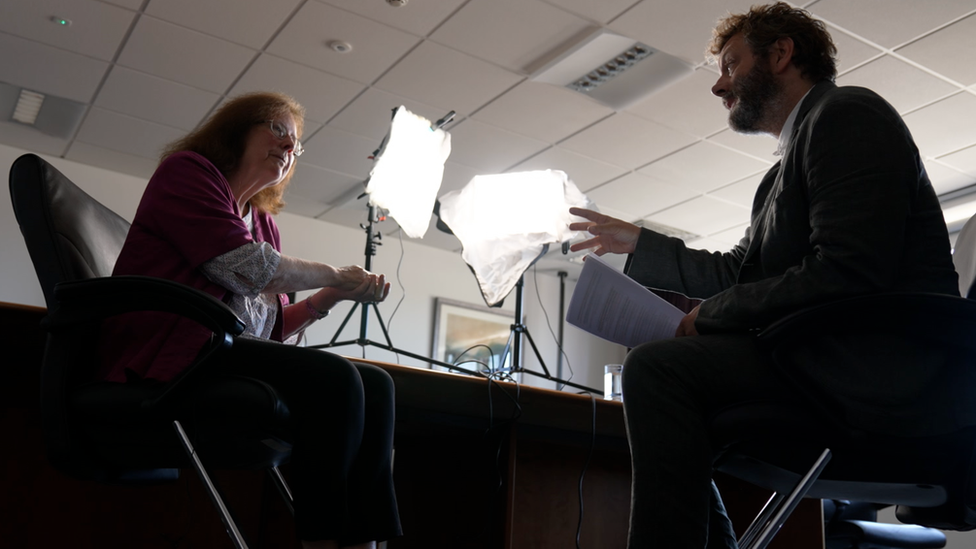
Julie Morgan has said the Welsh government is to invest more in foster carers and support workers for those leaving care
"Crises do happen, placements break down, families break down... and the children have to be put somewhere... we don't accept that that should be the situation and we're trying to do things to stop that."
She added there were plans for new specialist accommodation for children with complex needs across Wales and the government was investing more in foster care and providing support for those leaving care.
"We have got it at the top of our agenda here in Wales... which doesn't mean that things don't go wrong," Ms Morgan added.
"To hear these tales from young people - and that I've heard so many times - that break your heart, you think how could this have happened?
"I absolutely accept that, but we're doing our utmost to make sure that every young person in Wales has, you know, a happy fulfilling life."
What is happening elsewhere in the UK?
In England and Scotland, there has just been an independent review of the children's care system which called for earlier help for families too.
Those in charge of social services departments there have long called for a "system overhaul", external to address all sorts of issues
The UK government said it had already banned under-16s staying in places that aren't inspected by the watchdog and will respond with more detailed plans later this year.
Would you be happy?
But for everything the politicians are putting forward, based on what you'll see if you watch my BBC documentary, I wonder if you would be happy for the current care system to look after your child if you weren't around.
If not, then don't we all need to consider whether that safety net - and the people who work within it - is being treated with the priority it deserves?
Because if we continue to let these people down and continue to get this wrong, surely the consequences don't bear thinking about.
Don't we feel we owe it to them - and society as whole - to sort this out?
Michael Sheen: Lifting the lid on the care system is on BBC iPlayer now and on BBC One Wales at 21:00 Tuesday 5 July
If you have been affected by any of the issues in this story, the BBC Action Line has links to organisations which can offer support and advice
- Published9 June 2022
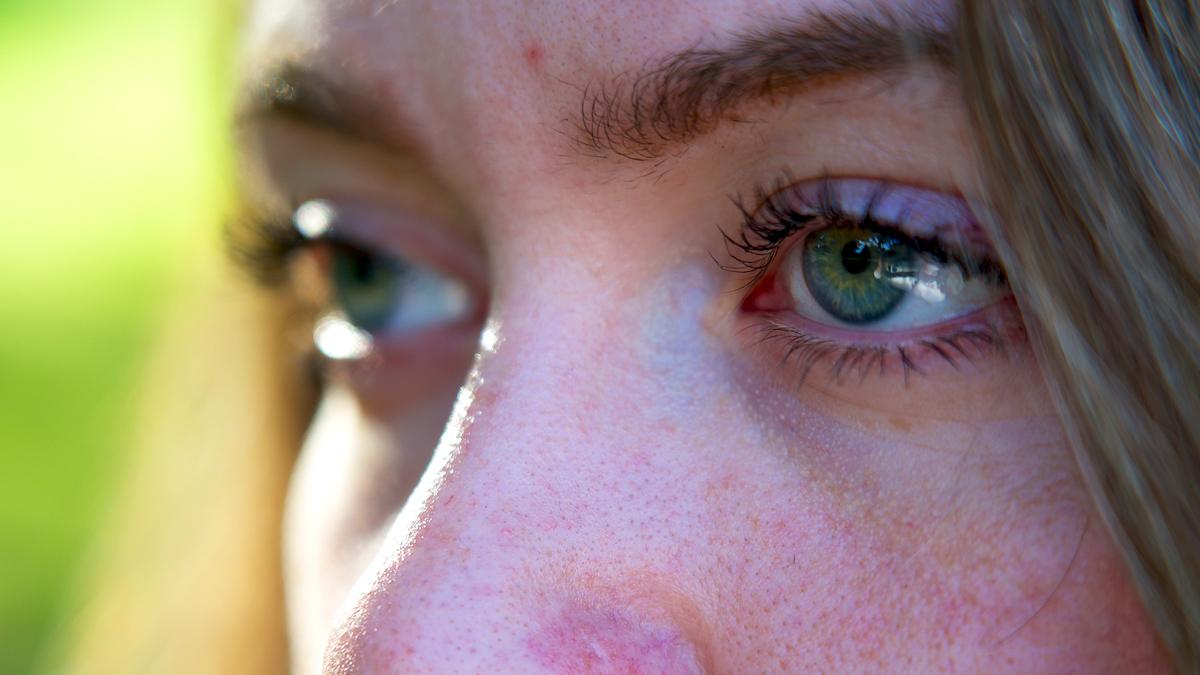
- Published17 February 2022
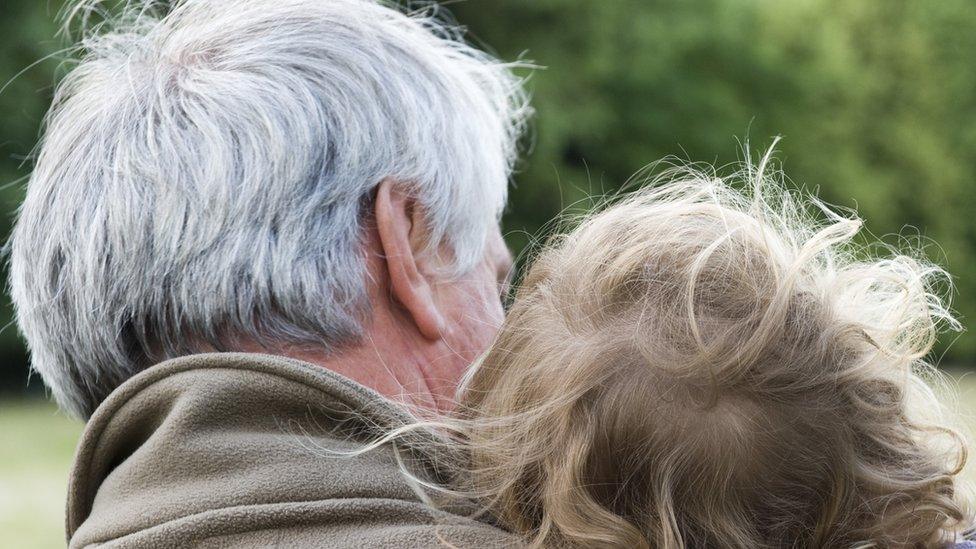
- Published22 November 2021
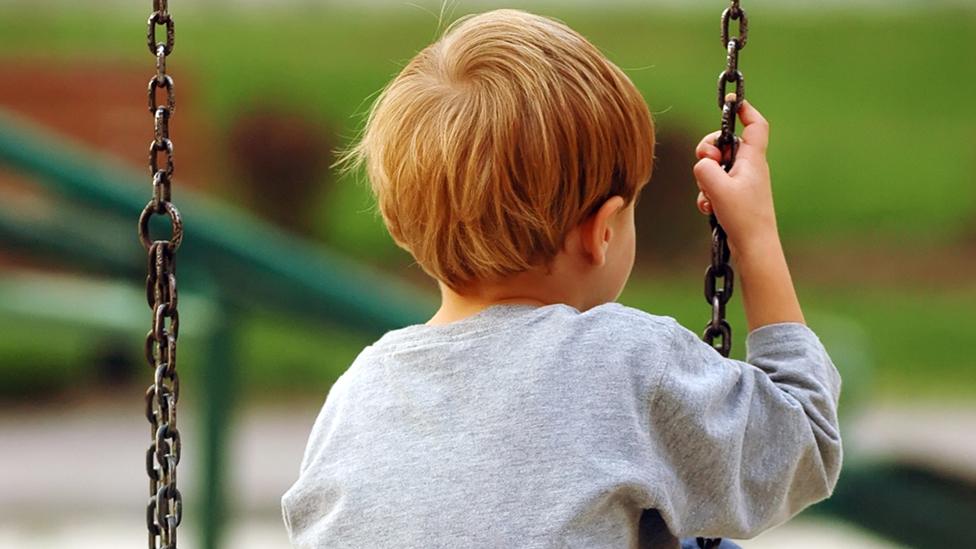
- Published8 June 2021
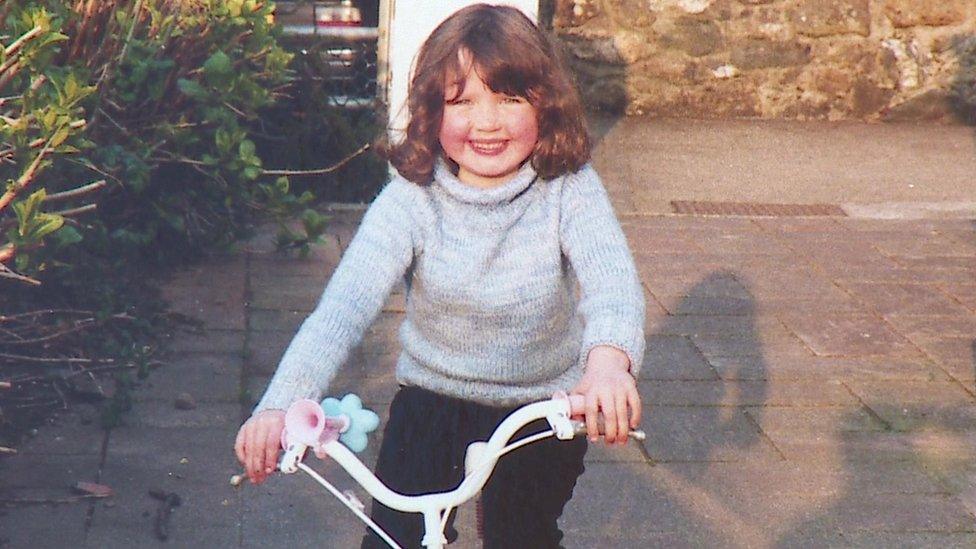
- Published10 February 2019
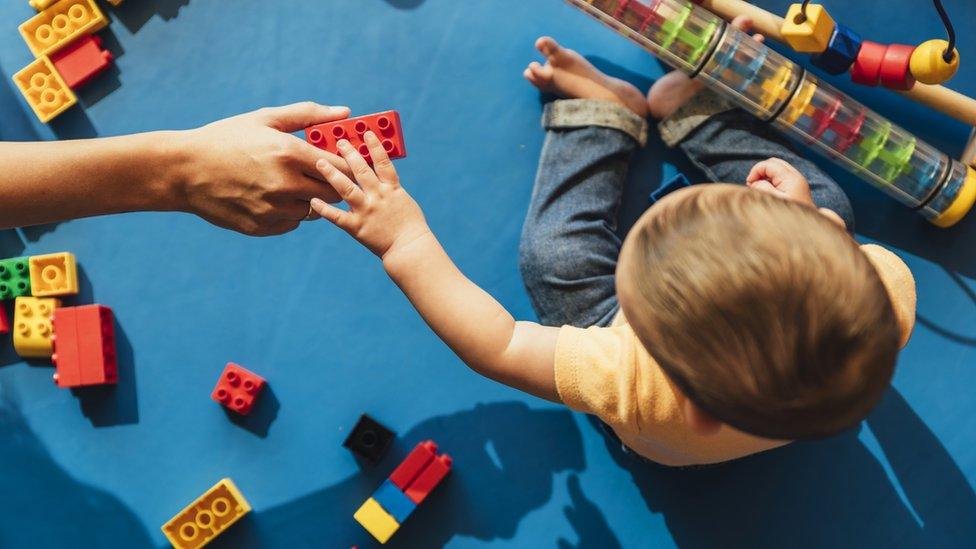
- Published13 December 2016
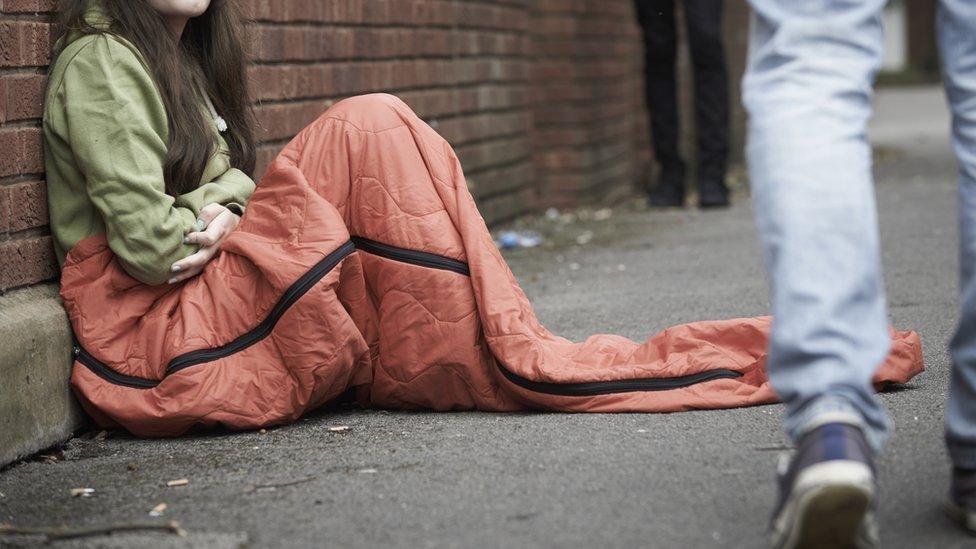
- Published22 December 2015
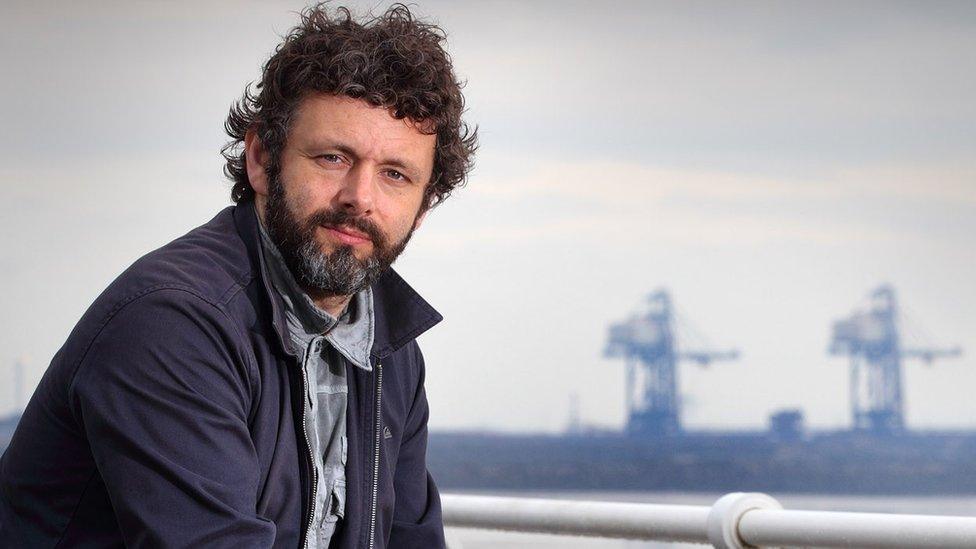
- Published30 September 2015
